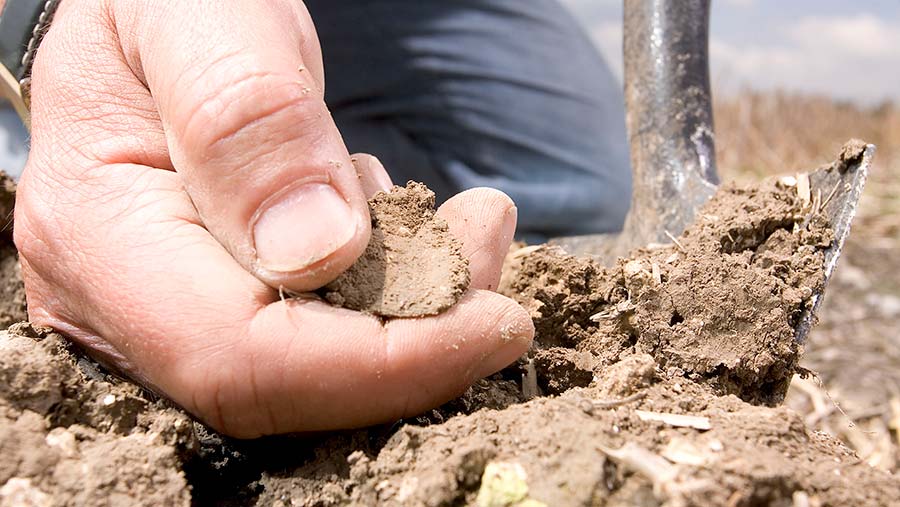Opinion: We have neglected our soils for too long

Agritechnica. It’s a biennial celebration of metal, rubber and glass that draws farmers and machinery dealers from across Europe and beyond to the German city of Hanover every second November, in search of the latest offerings from the world of agricultural mechanisation.
This event has become a Mecca for the progressive, the forward-thinking and the dynamic, looking for the cutting-edge in a competitive world of crop production.
One might expect the highlight of such an event to be something that challenges convention – the application of new technology that offers an alternative to the status quo and, with it, a potential quantum leap forward in productivity.
So what was the centrepiece of this year’s event? Well, speaking to a farming neighbour who made the two-yearly pilgrimage, only to be rather underwhelmed by what was on offer, it was seemingly a “pimped” monster sugar beet harvester with a flashy name, a “stealthy” black paint job and, one would imagine, a price tag to match. Hardly inspiring stuff.
It got me thinking that, rather than being the fount of arable enlightenment, Agritechnica is becoming the epitome of market failure. It’s a giant toyshop where the same old, same old is recycled, year after year – just that little bit bigger and shinier and with wider tyres – to extract cash from the assembled throng while contributing to the destruction of their most valuable asset, their soil.
See also: Land shouldn’t be a tax shield for the super rich
Soils have been largely overlooked in the march towards ever more efficient and productive farming in recent decades. Soil science has become a Cinderella discipline, losing out in the race to secure much-needed investment to plant and animal breeding, agrichemical development and, of course, mechanisation – all of which manifest themselves in tangible products that make profits for multinational corporations.
 David Alvis is managing director of Yorkshire Dairy Goats, based in the East Riding. He is a Nuffield Scholar and formerly co-managed the Technology Strategy Board’s sustainable agriculture and food innovation platform
David Alvis is managing director of Yorkshire Dairy Goats, based in the East Riding. He is a Nuffield Scholar and formerly co-managed the Technology Strategy Board’s sustainable agriculture and food innovation platform“Soils aren’t sexy – they don’t make anyone any money.” This was a recurring and rather worrying view voiced by many in agricultural research circles during my time with the Technology Strategy Board (now InnovateUK), which is charged with the distribution of much of the increase in government spending on applied agricultural research in recent years.
While this investment has been a shot in the arm for flagging agricultural productivity and has yielded some genuinely innovative outcomes, alas soils largely lost out again as the money ended up going where the “industry”, whose co-funding is essential to secure grant funding, could see – and, crucially, articulate – a potential return.
Healthy soils, so fundamental to sustainable, productive farming, require fewer, not more, inputs. This is bad news for companies producing big pieces of metal to mitigate or remediate the damage done by even bigger pieces of metal.
All of which means that the market alone on this occasion may well not hold all the answers, yet neither, it seems, will government intervention – which is likely to be significantly reduced in the public spending review.
This, however, leaves the door open for the AHDB, an organisation funded by producers, to step in and fill the gaps in this essential yet largely neglected area of research.
When margins are under pressure and producers face tough decisions over how to deploy scarce resources, levy money – intelligently and strategically invested – ought to prove a far better, if seemingly less immediately appealing, investment than another bit of shiny new kit.

